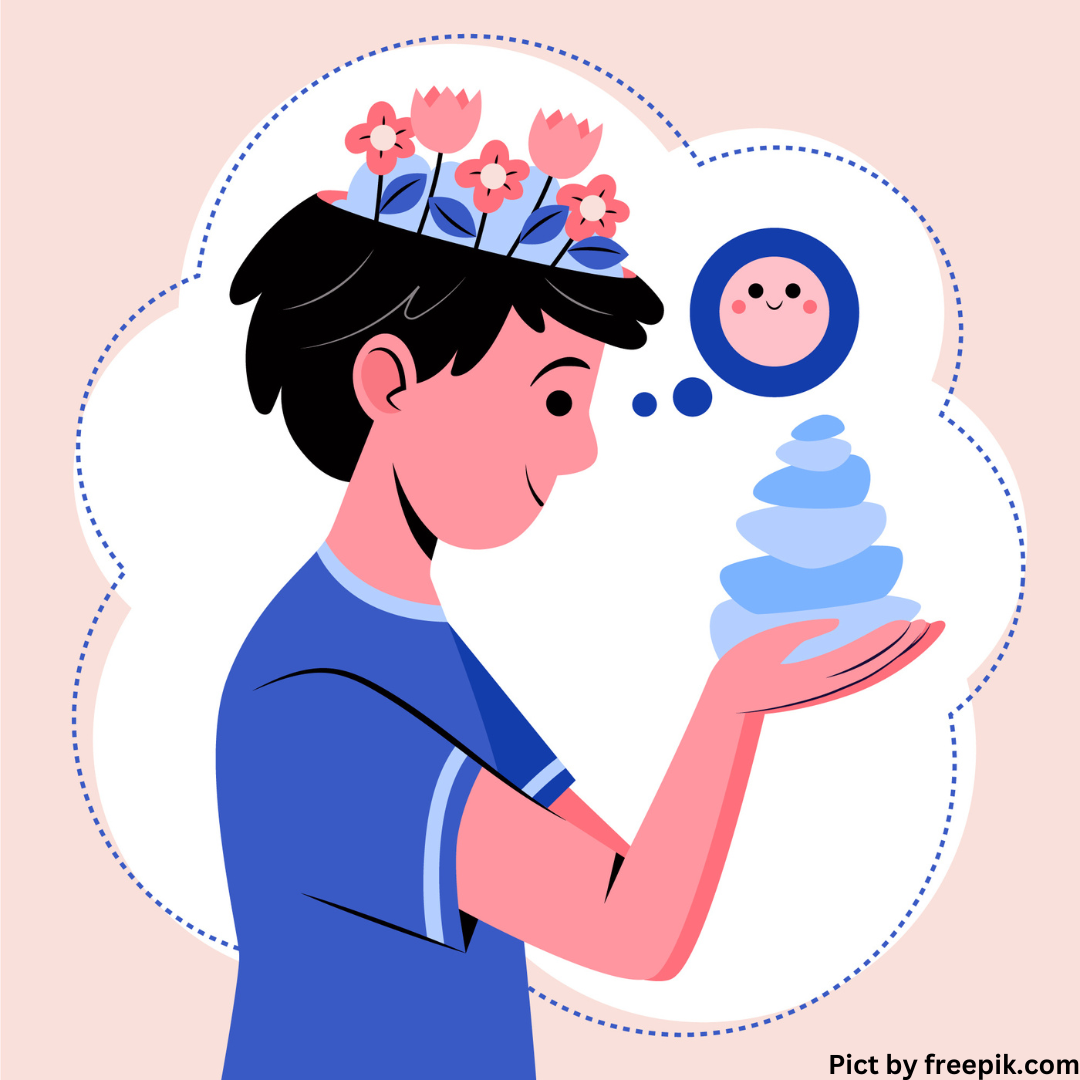INDONESIAN HEALTH IN CRISIS: ASSOCIATION BETWEEN COGNITIVE FUNCTION AND DEPRESSION
Krisis Kesehatan di Indonesia: Hubungan antara Fungsi Kognitif dan Depresi berdasarkan Indonesian Family Life Survey

Downloads
Background: Depression differs from common mood swings and short-lived emotions. It has been extensively reported that cognitive impairment is associated with depression. Depression affects all aspects of life and interferes with productivity. Purpose: This study examined the association between cognitive function and depression in an Indonesian working age group. Methods: We used data from longitudinal socioeconomic and health surveys based on the fifth wave of the Indonesian Family Life Survey (IFLS) from October 2014 to April 2015. Household members aged 15-64 were included in the analysis. Depression was assessed using the Short Center for Epidemiological Research Depression Scale (CESD). Cognitive function was measured using the Cognitive Status Telephone Interview (TICS). Simple linear regression analysis was performed to examine the association between cognitive function and depression. Results: A total of 10,628 households were included. Most respondents had good cognitive function (61.84%) and no depression (82.19%). A simple linear regression analysis showed that household members with good cognitive functioning had a significantly lower risk of developing depression compared to household members with cognitive decline, he was significantly 1.28 lower. Conclusion: This study found a significant association between cognitive function and depression in the productive-age group. Further research exploring variables related to depression other than cognitive function is recommended. Health care providers should provide education, counselling, and training sessions related to healthy lifestyles and positive mindsets to prevent depression.
WHO. Depression [Internet]. 2021 [cited 2022 Nov 13]. Available from: https://www.who.int/news-room/fact-sheets/detail/depression
WHO. Depression and other common mental disorders. Geneva: World Health Organization; 2017.
Wahyuni S, Effendy C, Kusumaningrum FM, Dewi FST. Factors Associated with Independence for Elderly People in Their Activities of Daily Living. J Berk Epidemiol. 2021 Jan 29;9(1).
Zhao L, Han G, Zhao Y, Jin Y, Ge T, Yang W, et al. Gender differences in depression: evidence from genetics. Front Genet [Internet]. 2020;11:562316. Available from: https://www.frontiersin.org/articles/10.3389/fgene.2020.562316/full
Ali M, Fahmy M, Haggag W, El-Tantawy A, Hassan H. Evaluation of cognitive impairment in patients with major depressive disorder in remission. Middle East Curr Psychiatry [Internet]. 2021;28(1):1–6. Available from: https://mecp.springeropen.com/articles/10.1186/s43045-021-00149-x#citeas
Morey-Nase C, Phillips LJ, Bryce S, Hetrick S, Wright AL, Caruana E, et al. Subjective experiences of neurocognitive functioning in young people with major depression. BMC Psychiatry [Internet]. 2019;19(1):209. Available from: https://doi.org/10.1186/s12888-019-2197-1
Juniarta PM, Aryana IGPS. Hubungan antara depresi, gangguan fungsi kognitif, dan kualitas hidup penduduk usia lanjut di Desa Pedawa, Kabupaten Singaraja, Bali. J Penyakit Dalam Udayana [Internet]. 2018;2(1):19–22. Available from: https://jpdunud.org/index.php/JPD/article/view/36
Strauss J, Witoelar F, Sikoki B. The fifth wave of the Indonesia family life survey: overview and field report. Santa Monica; 2016. (1st Volume).
Cohen RA, Alexander GE. Using the telephone interview for cognitive status and telephone montreal cognitive assessment for evaluating vascular cognitive impairment: promising call or put on hold? [Internet]. Vol. 48, Stroke. Am Heart Assoc; 2017. p. 2919–21. Available from: https://pubmed.ncbi.nlm.nih.gov/29042491/
Richardson L, Adams S. Cognitive deficits in patients with depression. J Nurse Pract [Internet]. 2018;14(6):437-443.e3. Available from: https://www.sciencedirect.com/science/article/pii/S1555415518302848
Semkovska M, Quinlivan L, O'Grady T, Johnson R, Collins A, O'Connor J, et al. Cognitive function following a major depressive episode: a systematic review and meta-analysis. The Lancet Psychiatry [Internet]. 2019;6(10):851–61. Available from: https://www.sciencedirect.com/science/article/pii/S2215036619302913
Villarroel MA, Terlizzi EP. Symptoms of depression among adults: United States, 2019 [Internet]. US Department of Health and Human Services, Centers for Disease Control and ...; 2020. Available from: https://www.cdc.gov/nchs/products/databriefs/db379.htm
Purborini N, Lee M-B, Devi HM, Chang H-J. Associated factors of depression among young adults in Indonesia: a population-based longitudinal study. J Formos Med Assoc [Internet]. 2021;120(7):1434–43. Available from: https://www.clinicalkey.com/#!/content/playContent/1-s2.0-S0929664621000383?returnurl=https:%2F%2Flinkinghub.elsevier.com%2Fretrieve%2Fpii%2FS0929664621000383%3Fshowall%3Dtrue&referrer=
Cohen AK, Nussbaum J, Weintraub MLR, Nichols CR, Yen IH. Peer reviewed: Association of adult depression with educational attainment, aspirations, and expectations. Prev Chronic Dis [Internet]. 2020;17. Available from: https://www.cdc.gov/pcd/issues/2020/20_0098.htm
Aartsen M, Veenstra M, Hansen T. Social pathways to health: On the mediating role of the social network in the relation between socio-economic position and health. SSM - Popul Heal [Internet]. 2017;3:419–26. Available from: https://www.sciencedirect.com/science/article/pii/S2352827316301616
Lee Y, Bierman A. Loneliness as a mediator of perceived discrimination and depression: examining education contingencies. Int J Aging Hum Dev [Internet]. 2018 Mar 20;89(2):206–27. Available from: https://journals.sagepub.com/doi/10.1177/0091415018763402
Posel D, Oyenubi A, Kollamparambil U. Job loss and mental health during the COVID-19 lockdown: Evidence from South Africa. PLoS One [Internet]. 2021;16(3):e0249352. Available from: https://journals.plos.org/plosone/article?id=10.1371/journal.pone.0249352
Yoon S, Shin C, Han C. Depression and cognitive function in mild cognitive impairment: a 1-year follow-up study. J Geriatr Psychiatry Neurol [Internet]. 2017 Sep 1;30(5):280–8. Available from: https://doi.org/10.1177/0891988717723741
Scult MA, Paulli AR, Mazure ES, Moffitt TE, Hariri AR, Strauman TJ. The association between cognitive function and subsequent depression: a systematic review and meta-analysis. Psychol Med [Internet]. 2017;47(1):1–17. Available from: https://www.cambridge.org/core/journals/psychological-medicine/article/abs/association-between-cognitive-function-and-subsequent-depression-a-systematic-review-and-metaanalysis/F08047C40E30D4D3A85A1AA1898AC11E
Ahn HI, Hyun MK. Effectiveness of integrative medicine program for dementia prevention on cognitive function and depression of elderly in a public health center. Integr Med Res [Internet]. 2019;8(2):133–7. Available from: https://www.sciencedirect.com/science/article/pii/S2213422019300733
- Every manuscript submitted to must observe the policy and terms set by the Jurnal Berkala Epidemiologi
- Publication rights to manuscript content published by the Jurnal Berkala Epidemiologi is owned by the journal with the consent and approval of the author(s) concerned. (download copyright agreement)
- Complete texts of electronically published manuscripts can be accessed free of charge if used for educational and research purposes according to copyright regulations.

JBE by Universitas Airlangga is licensed under a Creative Commons Attribution-ShareAlike 4.0 International License.























